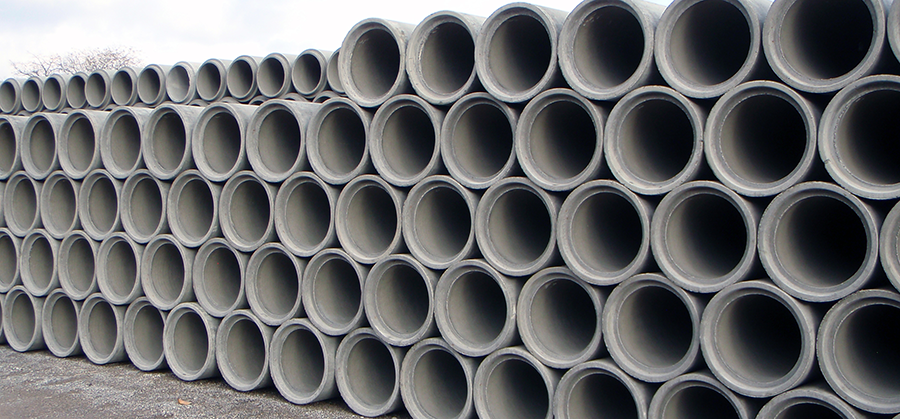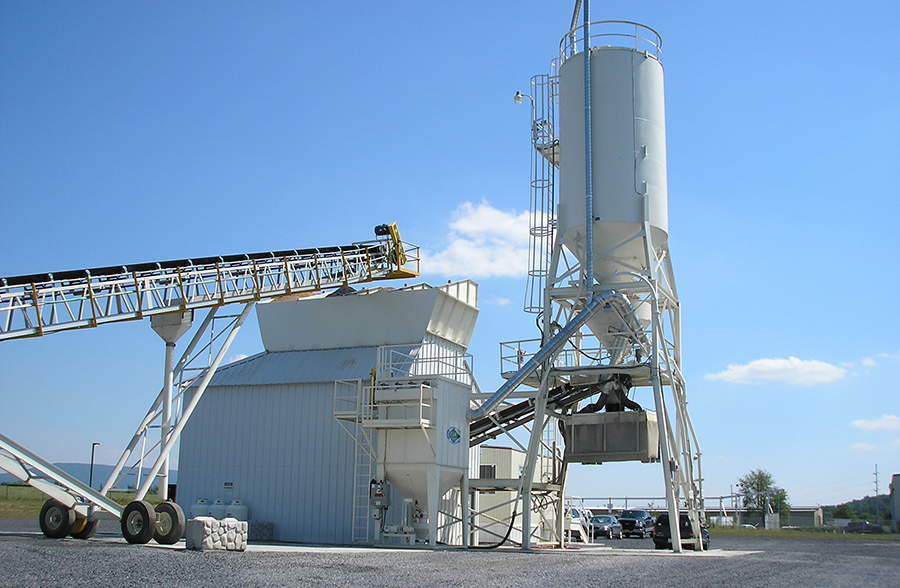Whether you run a ready mix concrete, brick & block, or precast concrete plant, here's the TRI Reporting information you need to know.
Every year around this time, like clockwork, our voicemails & inboxes start getting full from calls from concrete producers all over the country asking about one specific environmental regulation that is pretty confusing; TRI Reporting.
The problem is, the TRI Reporting regulations are confusing & virtually unknown, are pretty poorly enforced, and is only recently being a source of trouble for the concrete industry. Despite being an applicable regulation at a majority of concrete plants for a long time, it's becoming more and more frequently enforced by the USEPA & 3rd party regulations. Concrete plants, just like other various types of industrial and commercial facilities, are getting hit with very costly violations for failing to be in compliance with TRI Reporting regulations.
Fortunately, concrete plants often have an easier job conducting TRI Reporting that other industries, regardless of the type of concrete you're producing. So let's discuss a few keys points concrete producers need to know about TRI Reporting at concrete plants.

Concrete plants NEED to worry about TRI Reporting!
Concrete plants, like any other US industrial operation, are subject to chemical reporting regulations if they use, process, manufacture, or store certain hazardous chemicals. Simply put, these reporting requirements have to do with letting the outside world know what types of chemicals are used at industrial facilities, in what quantities, and if there have been any 'releases' to the environment.
Concrete plants of ally shapes and sizes are covered under various NAICS Codes. If your NAICS code starts with 327, then you have to report. It doesn't matter if you're running a precast concrete plant, block or pipe plant, or a ready mix concrete plant, you're subject to TRI Reporting regulations.
And, depending on your operation, there may be other areas of concern. You need to carefully evaluate your situation. Don't just take our word for it, you'll need to specifically evaluate your operation. When in doubt, get help. Talk to your boss, your association, or hire outside help.
Regardless of whether or not you've heard of it before, this is not a new regulation. TRI Reporting has barely been enforced by the USEPA before, so many concrete producers across the United States are unfamiliar with the regulations. Additionally, with the rise of 3rd party environmental groups suing concrete producers of all shapes and sizes, it's become more important than ever to pay attention to this regulation.
Just like getting pulled over for speeding even though you didn't see that speed limit sign, ignorance of the law is not a valid excuse.
We are seeing and hearing, year after year, concrete producers from the ready mix, precast, brick, block, and other types of concrete getting in trouble for not conducting TRI Reporting.
TRI Reporting Enforcement at Concrete Plants is Expensive
Many folks like to "wait until this gets enforced", and speaking from experience, I urge you not to, for one simple reason.
The violations you'll receive from the USEPA for non-compliance can be applied to every facility you have, going back several years.
So for example, if you ran 10 ready mix concrete plants, and 2 precast operations, and you've never conducted reporting, they could give you a violation for each of your facilities for the past several years. Now figure that each violation is going to run in the thousands of dollar range.
Things can, and routinely do, quickly add up. Here at RMA we've dealt with concrete producers getting enormous fines, in the 7 figure range from the USEPA. We've seen concrete producers facing multi-million dollar lawsuits from 3rd party environmental groups for non-compliance.
But, concrete producers rarely end up having to write a check to the USEPA or a 3rd party environmental group for a couple of million dollars. Instead, they'll have to address the problem, and pay a reduced penalty. Sounds easy, right?
Wrong.
When all is said and done, anyone who's dealing with USEPA enforcement is going to have to likely:
- Hire legal counsel - You don't think you can navigate handling a multi-million dollar fine on your own, do you?
- Hire an environmental professional - Could be either an internal hire or hiring external help, but regardless you're going to need an expert on board.
- Get in compliance with everything - Need an SPCC Plan? You'll have to pay for one of those. Need a stormwater permit? You'll have to pay for one of those as well. When the USEPA shows up to enforce one regulation, they're going to take a peek into the other aspects of your operation as well. Also, we've seen the USEPA call in state & local regulators, and even OSHA, to let them know they're dealing with someone who's out of compliance. Expect a lot of enforcement action coming your way.
- Equipment & Site Modification Costs - This isn't a guarantee, but a lot of operations are going to change in one way, shape, or form. If you need to get into compliance with a new SPCC Plan you might have to install new tanks or construct secondary containment. If you need to get into compliance with a stormwater permit you're going to need to buy some equipment, maybe hire an outside lab to analyze stormwater samples, or even modify your site physically to adhere to the rules of your permit.
- Environmental Training - You're going to need to train your staff. Period, end of story. You're going to have to change the old mindset, for right or wrong, and start including more environmental issue for your staff training. People are going to need to know that your environmental program has to be taken seriously.
- Pro-Bono Work - If a 3rd party environmental group got you for non-compliance, we frequently see things thrown in like donating manpower for community beautification projects, or donating materials for a new park or sidewalk or something. You'll have to give away your time and product for free, and not in a positive community outreach type way, but in a we messed up and are sentenced to public service type way.
- Payments to 3rd Party Groups - Again, if a 3rd party environmental group went after you, you'll also be writing them a hefty check as well. You don't think these environmental lawyers these groups hire work for free, do you?
So as you can see, at the end of the day you're going to be faced with a lot of bills because you wanted to "wait until someone enforced it".
Are you willing to take this risk?
Concrete Plants Use Toxic Chemicals TRI Reporting Covers
It's plain and simple folks. Industry groups, major companies, 3rd party groups, and the USEPA all know that the material used on-site at a concrete plant contain toxic chemicals.
When we think about concrete, people like you and me think of it as one of the most versatile, durable building materials known to man. It's made from natural, basic materials like sand, stone, cement, and water. Hardly toxic materials, right? Well sort of.
Concrete producers don't like to think there is anything hazardous or toxic within concrete, and they're right! There really isn't anything in concrete that could interact in a negative way with the environment under nearly all applications of concrete. But, the chemicals in the materials themselves, in their raw state, could pose a problem. Here are three found at virtually every concrete plant we've ever been to:
- There's lead & mercury in your cement and SCMs (in addition to a bunch of other nasty chemicals with concentrations so low they're barely there).
- There's nitrate compounds in your admixtures.
- You're burning fuels that contain PACs (Polycyclic Aromatic Compounds, which are nasty chemicals in fuels).
And concrete plants all across the country are reporting on these various toxic chemicals in their materials.
We've even seen people reporting on the various toxic chemicals found in sand. SAND!
Point is, if you're in the concrete industry, you need to look into TRI Reporting. Talk to an expert and make darn sure you know what's going on and applicable at your facility.
The Cost of TRI Reporting at Concrete Plants
TRI Reporting at concrete plants should cost around $2,000 per facility, but depending on your situation could be as cheap as a few hundred dollars or way more than $2,000. It all depends on the particulars of your facility, the reporting, and some other variables, but figure $2,000 per facility is a very safe number for budgeting.
TRI Reporting at concrete plants isn't a walk in the park, regardless of the type of concrete plant, but is much easier than other industries out there.

TRI Reporting at Concrete Plants is No Joke
I don't want to be the boy who cried wolf, or a fear monger, or anything like that, but when it comes to any concrete industry, TRI Reporting enforcement is an area ripe for the picking.
When you look at governmental agencies who are facing shrinking budgets, and need to aggressively find income streams, TRI Reporting has become a gold mine for them. That goes double for these 3rd party environmental groups who are dying to make "big industry play by the rules".
So what should you do? Find out NOW if you should be doing TRI Reporting. If you don't know how, or if it turns out you should reporting, seek expert help. Don't become an enforcement headline.
Contact Concrete Industry Environmental Experts
Are you running a concrete plant and need help? If so, you've come to the right place. RMA has been actively involved in the concrete industry since our founding in 1992, including staff members from RMA serving on numerous boards and committees for state associations, NRMCA, and NPCA. We've been an integral part in developing NRMCA's Green-Star EMS, and were instrumental in the development of the NRMCA Environmental Course, and our Principal Environmental Consultant Doug Ruhlin has taught the course every year since it's inception.
Long story short, we know the ins and outs of the environmental problems concrete plants face better than anyone else. We've been on-site at close to 1,000 different concrete plants across the country, so when we say we've seen it all and done it all, we mean it. We've helped some of the biggest players in the industry on multi-state projects, as well as small mom and pop concrete producers running a handful of trucks. No matter your size, or the type of concrete you produce, we can help.
So if you're having any type of issue at your concrete plant, we'd love to talk and learn how we can help. Even if we can't help, chances are pretty good we know who can help you, and we'd love to get you in touch with the right people to fit your needs
To reach out, feel free to shoot us an email at info@rmagreen.com, click here to contact us, or give us a call anytime at 888-RMA-0230 to learn how we can help your concrete plant deal with environmental regulations.
Additional Concrete Plant TRI Reporting Articles
TRI Reporting heats up for the concrete industry!
Do concrete plants need to do TRI Reporting?
4 Must Knows About TRI Reporting at Concrete Plants














